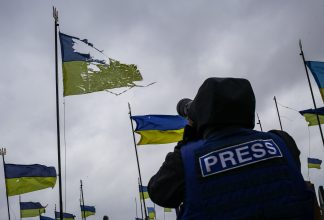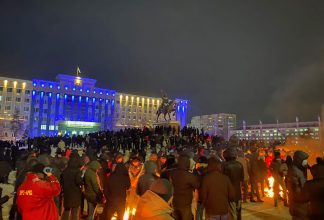Authorities Try to Force NGO’s to Register as Foreign Agents
In the last week, a number of nongovernmental organisations across Russia have received vague written communications and loosely worded warnings from the Prosecutor’s Office. This happened in the aftermath of a wave of inspections by government agencies that started in the end of February.
In compliance with the 2012 highly criticised law, organisations that receive foreign funding and engage in political activity have to register as foreign agents.
In some written communications political activity is referred to as some part in the organisation’s statute, however the legal grounds for the conclusion are largely unclear, so are the consequences for not complying.
For instance, Memorial Human Rights Centre, a partner of Civil Rights Defenders, received written communication from Moscow Prosecutor’s Office, indicating that the “violation of the federal legislation,” allegedly identified over the course of inspections, should be corrected within a month. No further information was offered, implying they should register as a “foreign agent”.
“This is an attempt by the authorities to force human rights organisations to register as foreign agents by confusing and frightening them. The Russian authorities should stop harassing the civil society,” said Joanna Kurosz, Eurasia Programme Director, Civil Rights Defenders.
Authorities have found different ways to indicate political activity. In Memorial´s case, the prosecutors mentioned the organisation’s purpose statement, such as ”publicising and disseminating reliable information on material violations of human rights and fundamental freedoms … exposing the truth about the crimes of totalitarian regimes.” But it is unclear in which of these purpose the prosecutor’s office has spotted “violations.” They also paid close attention to the organisation´s vision of ¨monitoring politically motivated administrative detentions and penal repression¨ implying political activity.
The first to be charged and fined under the new federal law was Golos, an organisation that monitors elections in Russia and played a prominent role in reporting allegations of electoral fraud in the 2011 parliamentary and 2012 presidential elections. The fine for receiving prize money for Andrei Sakharov Freedom Award by the Norwegian Helsinki Committee was considered foreign funding, despite the fact that the organisation returned the money shortly after it entered its bank account.
The Ministry of Justice claimed that Golos’ advocacy for the adoption of a unified Electoral Code sought to “influence public opinion and decisions of government bodies,” which, in their opinion, constituted “political activity”.
The wave of inspections started at the end of February by various agencies – including Federal Taxation Service, Prosecutor´s Office and Ministry of Justice – hit about 200 NGOs, even including the Moscow offices of Amnesty International and Human Rights Watch.


